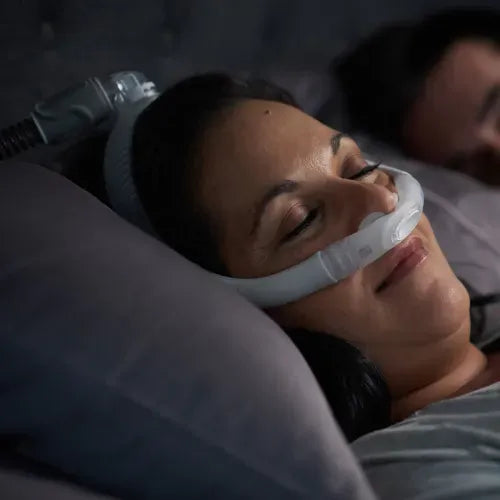The most common side effects of CPAP therapy include dry mouth, nasal congestion, and skin irritation from the mask.
If this is an issue, try to increase your humidity levels and use heated (climate controlled) tubing. A good place to start is to ensure you are preheating your humidifier before going to bed. Also, if you are breathing out of your mouth, consider getting a full face mask that covers both your nose and mouth.
Another side effect can be dry, sore eyes. This is often due to your mask leaking and shooting air into your eyes and face. Run a mask leak test to see if this is an issue. Also, try to roll around in bed and see if your mask is leaking. Sometimes, the pressure from your pillow (for side sleepers) can push the mask and cause a leak. In this case, consider trying a new mask.
In rare cases, CPAP therapy can also lead to an increase in CO2 levels in the blood (hypercapnia) and worsening of acid reflux. It is important to speak with your healthcare provider if you experience any negative side effects from CPAP therapy, as adjustments to the mask or pressure settings may be necessary.
At last, aerophagia is a condition that occurs when air is unintentionally swallowed while using a CPAP machine. This can cause discomfort and bloating in the stomach, and in some cases, can lead to belching, flatulence, and acid reflux. It can also cause pressure or discomfort in the chest, and can make it difficult to fall asleep.
Aerophagia can be caused by a pressure that is set too high, a mask that does not fit properly, or by sleeping on your back. To prevent aerophagia, it's important to use the correct pressure settings as prescribed by a healthcare provider and to make sure that the mask fits properly. Often switching to a full face mask can help. Also, try sleeping on your side or at an angle. Sleeping at a slight angle (such as 30 degrees) can help relieve this issue, temporarily. If the symptoms persist, please consult with your healthcare provider.
To speak with our sleep therapists, click here.
